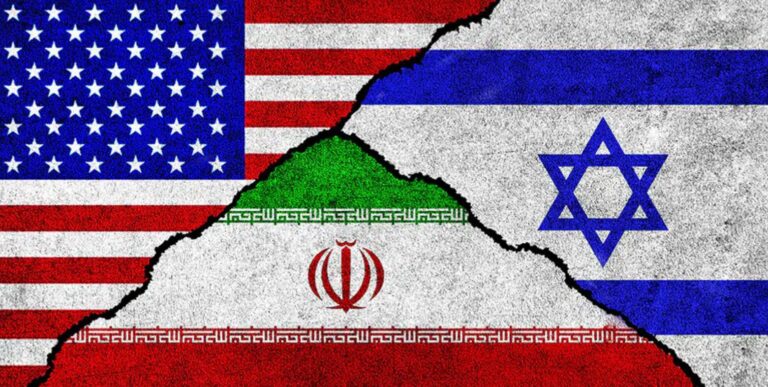U.S. Strike on Iranian Nuclear Sites Sparks Outrage Across Latin America and UN
Latin American leaders and the UN have condemned the U.S. airstrikes on Iranian nuclear facilities as a blatant violation of international law and a threat to global peace.

Global outrage mounts as U.S. bombs Iranian nuclear sites, triggering diplomatic firestorm. Photo: aclj
June 22, 2025 Hour: 3:46 am
The United States’ strike on Iranian nuclear facilities has triggered widespread condemnation across Latin America and at the United Nations, with leaders warning of a severe breach of international law and a dangerous escalation in an already volatile region.
RELATED:
Venezuela Condemns US Aggression on Iran
The airstrikes—confirmed by former U.S. President Donald Trump—targeted Iran’s nuclear sites at Fordow, Natanz, and Isfahan. The response from Latin American governments was swift and unified in rejecting the use of unilateral force and demanding respect for the UN Charter and global nuclear safeguards.
Cuban President Miguel Díaz-Canel denounced the attack as an act of aggression that “drags humanity into a crisis of irreversible consequences.” Cuban Foreign Minister Bruno Rodríguez reinforced the position, calling it a “criminal and irresponsible act” that undermines the international regime for nuclear security.
In Chile, President Gabriel Boric strongly condemned the strike. “Attacking nuclear plants is prohibited under international law,” he said. “We will defend respect for international humanitarian law in every forum. Having power does not authorize its use in violation of the rules we have established as humanity. Even if you are the United States.”
Mexico issued an urgent appeal for diplomacy. In an official statement, Foreign Minister Juan Ramón de la Fuente emphasized that “the restoration of peaceful coexistence between states in the region is the highest priority.” The Mexican government urged all parties involved in the Middle East conflict to abandon military escalation and return to dialogue.
The Colombian Foreign Ministry expressed “deep concern over rising tensions between the United States and Iran,” urging the resumption of negotiations as “the only responsible and lasting solution.” The statement made clear that Colombia “rejects the unilateral use of force, especially when it contravenes the fundamental principles enshrined in the United Nations Charter.”
Colombian President Gustavo Petro had earlier warned that the Trump administration “should not participate in war with Iran or in the genocide in Gaza, but rather prevent them.”
Venezuela firmly rejected the U.S. airstrikes, describing them as “an illegal, unjustifiable, and extremely dangerous act of aggression,” carried out “at the request of the State of Israel.” The Venezuelan Foreign Ministry added:
“Bombing nuclear facilities, with all the risks it poses to human life and regional environmental balance, is an irresponsible escalation that could unleash consequences of incalculable proportions for global stability.”
Caracas reaffirmed its “solidarity with the Iranian people and its commitment to peace, sovereignty, and the defense of international law as the only path toward coexistence among nations.”
At the international level, UN Secretary-General António Guterres expressed alarm at the developments.
“I am deeply alarmed by the use of force by the United States against Iran today,” he said, calling the attack “a dangerous escalation in a region already at the brink, and a direct threat to international peace and security.”
Guterres urged all actors to avoid a descent into chaos, warning: “There is no military solution. The only path forward is diplomacy. The only hope is peace.”
Egyptian President Abdel Fattah El-Sisi also condemned the attack, urging an immediate ceasefire and a return to diplomatic negotiations. He reaffirmed Egypt’s rejection of Israel’s military escalation against Iran.
Meanwhile, the Hamas movement joined the wave of condemnation, declaring: “We condemn in the strongest terms the flagrant U.S. aggression against the territory and sovereignty of Iran.”
Hamas described the strike as “a dangerous escalation, blind obedience to the Israeli occupation’s agenda, and a blatant violation of international law”. “We affirm our solidarity with Iran, its leadership and people, and our full confidence in its ability to defend its sovereignty,” the group added.
Iran’s Atomic Energy Organization (IAEO) denounced the U.S. attack on Fordow, Natanz, and Isfahan, accusing Washington of violating the Treaty on the Non-Proliferation of Nuclear Weapons (NPT) and criticizing the International Atomic Energy Agency (IAEA) for its silence.
Latin American leaders emphasized that the nuclear non-proliferation regime is a cornerstone of global security. Weakening this framework, they warned, represents a direct threat to all of humanity. According to several foreign ministries, the U.S. action has also undermined the legal norms and safeguards overseen by the IAEA.
With tensions at a breaking point, governments across the Global South are calling for urgent diplomatic engagement to prevent the crisis from spiraling into a wider conflict—one with potentially catastrophic consequences for international peace and security.
Author: MK
Source: Al Mayadeen




